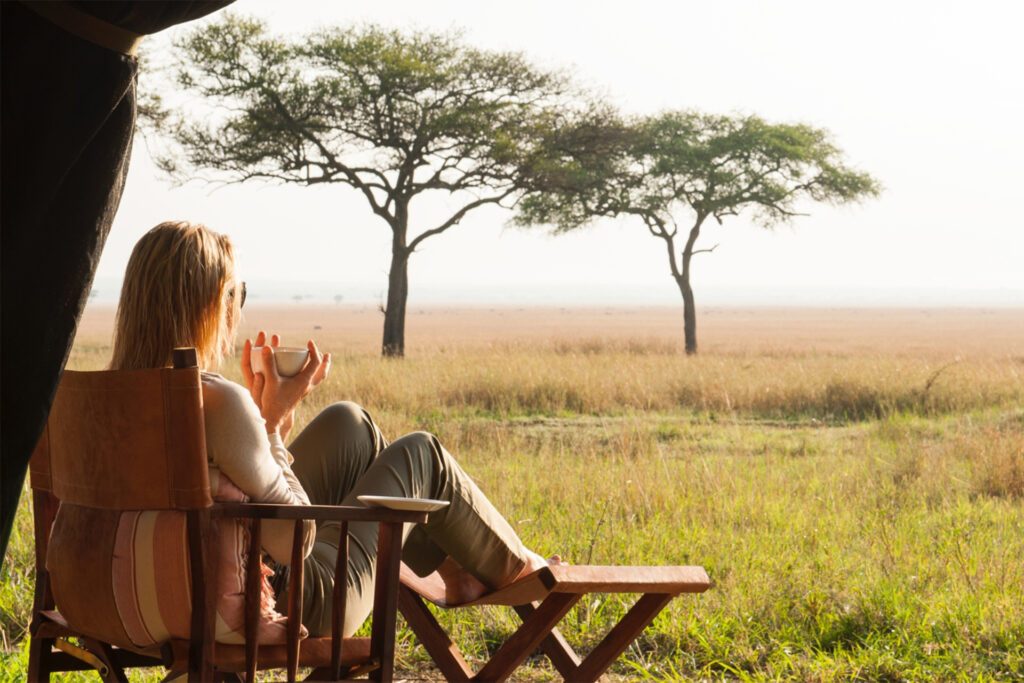A Complete Guide to Planning a Successful Tanzania Safari for Solo Travelers.
A solo safari expedition in Tanzania promises a memorable voyage through different landscapes, encounters with iconic species, and immersion in East Africa’s rich culture. Tanzania has a wealth of natural treasures to experience, from the vast Serengeti plains to the breathtaking Ngorongoro Crater. However, organizing a solo safari involves great thought and preparation to ensure a safe and enjoyable experience. In this detailed guide, we will walk you through the procedures necessary to arrange a successful Tanzania safari for solo travel.
Step 1: Research and Select the Right Safari Destination
Tanzania has several world-renowned national parks and game reserves, each offering a distinct wildlife experience. Investigate the various places, taking into account wildlife sightings, sceneries, and the time of year. The Serengeti National Park, famous for the Great Migration, and the Ngorongoro Crater, a UNESCO World Heritage Site, are popular destinations. However, lesser-known parks such as Tarangire and Lake Manyara provide excellent wildlife viewing possibilities with fewer tourists.
Step 2: Determine your budget and travel dates.
Solo travel allows you to customize your safari experience based on your budget and schedule. Determine how much you want to spend on lodging, transportation, park fees, and activities. Consider going during the shoulder seasons (March to May and October to November) for reduced pricing and less tourists, but still enjoy fantastic wildlife views.
Step 3: Book your accommodations and transportation.
Once you’ve decided on a safari destination and vacation dates, arrange your accommodations and transportation ahead of time. Luxury resorts and tented camps are available, as well as low-cost campgrounds. Make sure your chosen accommodations have services like as guided game drives, meals, and competent personnel that can assist solitary visitors.
Step 4: Schedule a Reliable Safari Operator or Guide
For solitary travelers, finding a trustworthy safari operator or guide is critical for a safe and fulfilling journey. Look for providers who have positive reviews, vast expertise, and a dedication to sustainable tourism practices. A qualified guide can enrich your safari by sharing useful information about Tanzania’s wildlife, culture, and history.
Step 5: Pack wisely and prepare for the safari.
Pack little, but bring essentials like comfortable clothing, strong walking shoes, a hat, sunscreen, bug repellent, and a camera with additional batteries and memory cards. Consider carrying binoculars to improve animal watching. Familiarize yourself with the safari etiquette and safety rules supplied by your operator or guide.
Step 6: Stay flexible and embrace the adventure.
Solo travel allows you to choose your itinerary and welcome unforeseen adventures along the way. Be open to new experiences, such as watching a lioness pursue her prey or socializing with Maasai tribal members in a nearby settlement. Maintain flexibility in your plans, allowing for spontaneity and chance encounters that make solo safari travel truly unique.
Step 7: Practice Responsible Tourism and Respect for the Environment
As a lone traveler in Tanzania, it is critical to practice responsible tourism by respecting the environment, wildlife, and local populations. Follow park rules, stay on authorized pathways during game drives, and do not litter or harm the natural habitat. Respect local communities by supporting sustainable tourist activities that assist the local economy while also preserving cultural assets.
Step 8: Reflect and share your experience.
After your solo safari journey, take some time to think on your experiences and recollections. Consider creating a journal or blog to track your journey and share it with loved ones. Sharing your experiences can motivate people to go on their own solo safari trips, while also instilling a stronger awareness for wildlife protection and cultural exchange.
To summarize, preparing a successful Tanzania safari for solo travel necessitates extensive research, meticulous planning, and a sense of adventure. By following these steps and taking advantage of the unique opportunities that solo travel provides, you can start on a safari adventure that will last a lifetime. Pack your luggage, embark on the ultimate African adventure, and ready to be enchanted by the beauties of Tanzania’s wilderness.


